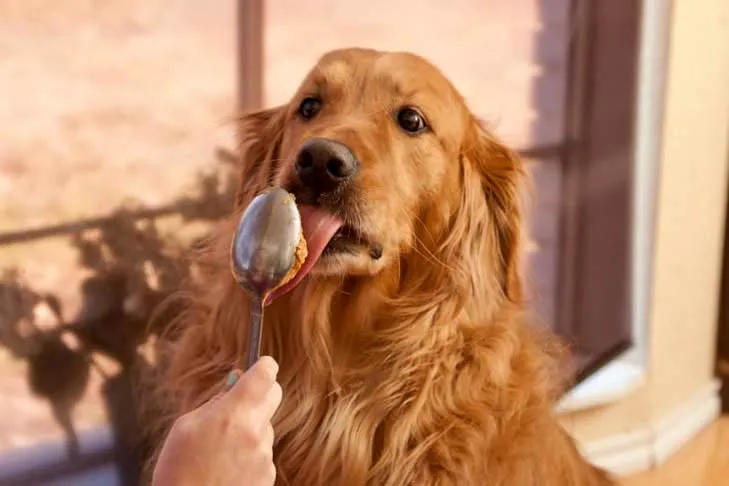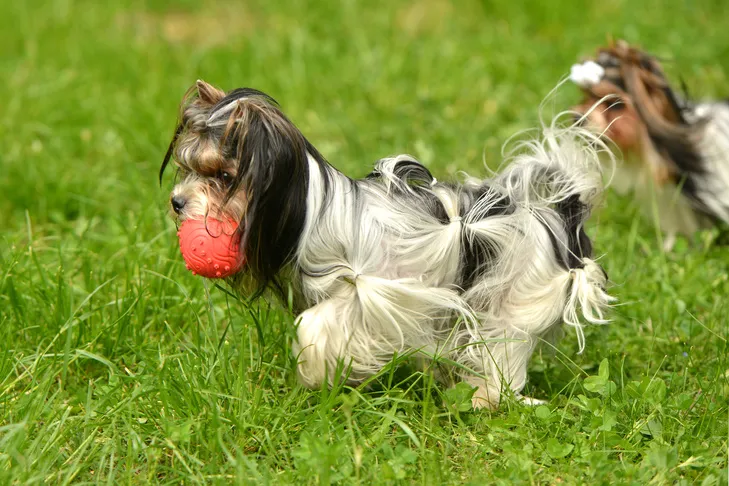Many dog owners find their canine companions’ ears perk up at the mere crinkle of a peanut butter jar. This popular treat is not only a favorite for pups but can also be a convenient way to dispense medication or make puzzle toys more engaging. However, before you let your furry friend dive into that nutty goodness, it’s crucial to understand the health implications and safe practices. This guide delves into what makes peanut butter safe for dogs, how much they can consume, and the critical warning signs to watch out for, ensuring your dog enjoys this treat without compromising their well-being.
The Nutritional Benefits of Peanut Butter for Dogs
Peanut butter, when given in moderation and in the right form, can offer several nutritional advantages for dogs. It’s a good source of protein, essential for muscle development and repair. It also contains healthy fats, which are vital for energy and maintaining a healthy coat and skin. Furthermore, peanut butter provides beneficial vitamins, including Vitamin E, an antioxidant that supports the immune system, and B vitamins, which play a role in energy metabolism. Niacin, another B vitamin found in peanut butter, is important for digestion and overall cellular function.
The healthiest choice for your dog is typically unsalted, unsweetened peanut butter. Many commercially available peanut butters contain added sugars, sodium, and other preservatives that are not beneficial and can even be harmful to dogs in the long run. Opting for peanut butter specifically formulated for dogs or making your own at home ensures you are providing a pure and safe treat. Homemade versions allow you to control all the ingredients, eliminating unnecessary additives and providing a healthier alternative.
 A Golden Retriever happily licking peanut butter from a spoon.
A Golden Retriever happily licking peanut butter from a spoon.
How Much Peanut Butter Can Your Dog Safely Consume?
While peanut butter offers nutritional benefits, its high fat and calorie content means it should be given in moderation. Overconsumption can contribute to weight gain, which is a significant health concern for dogs and can lead to other serious issues such as pancreatitis, a painful inflammation of the pancreas. Pancreatitis can be triggered by high-fat meals, making it particularly risky for dogs with a propensity for this condition.
Determining the right amount of peanut butter for your dog involves careful consideration. The most reliable approach is to consult your veterinarian. They can provide personalized recommendations based on your dog’s breed, age, activity level, and any existing health conditions like diabetes or food sensitivities.
Alternatively, you can follow the general “10 percent rule.” This guideline suggests that treats, including peanut butter, should not constitute more than 10% of your dog’s total daily caloric intake. To implement this, you first need to know how much food your dog consumes daily. If you’re incorporating peanut butter, consider reducing other treat portions to maintain this balance. It’s also a good practice to vary your dog’s treats, alternating peanut butter with other dog-friendly options like certain fruits or vegetables that are safe and healthy. Understanding what food cannot be given to dogs is also crucial in maintaining a balanced diet.
A Critical Health Alert: The Dangers of Xylitol
While most peanut butter is safe for canine consumption, there’s a critical ingredient to watch out for that can be deadly: xylitol. This artificial sweetener is commonly found in sugar-free products, including chewing gum, toothpaste, breath mints, some chewable vitamins, and baked goods. Although safe for human consumption, xylitol is highly toxic to dogs.
When dogs ingest xylitol, it triggers a rapid release of insulin from their pancreas. This surge in insulin leads to a drastic and life-threatening drop in blood sugar levels, a condition known as hypoglycemia. Symptoms can appear as quickly as 10 to 60 minutes after ingestion and include weakness, staggering, lack of coordination, collapse, and seizures. If left untreated, xylitol poisoning can be fatal.
 A Biewer Terrier running in the grass with a ball.
A Biewer Terrier running in the grass with a ball.
Preventing xylitol poisoning is straightforward. Always check the ingredient list of any peanut butter or food product before giving it to your dog. If xylitol is listed, do not give it to your dog. Furthermore, store all products containing xylitol securely out of your dog’s reach. If you suspect your dog has consumed xylitol, contact your veterinarian immediately. Prompt veterinary attention is vital for managing hypoglycemia and preventing severe consequences. Remember, being aware of what foods dogs can’t have is paramount for their safety.
In conclusion, dogs can indeed enjoy peanut butter as a treat, but with important precautions. Always choose unsalted, unsweetened varieties, and feed it in moderation as part of a balanced diet. Always check labels for the toxic sweetener xylitol and consult your veterinarian for personalized dietary advice. By staying informed and vigilant, you can ensure that this beloved nutty spread remains a safe and enjoyable part of your dog’s life. For more information on safe foods for your pets, explore our guides on what meat is not good for dogs and what meat is not good for dogs to eat.
References
- American Kennel Club. (n.d.). Pancreatitis in Dogs. Retrieved from https://www.akc.org/expert-advice/health/pancreatitis-in-dogs/
- American Kennel Club. (n.d.). Diabetes in Dogs. Retrieved from https://www.akc.org/content/health/articles/diabetes-in-dogs/
- American Kennel Club. (n.d.). Fruits and Vegetables Dogs Can and Can’t Eat. Retrieved from https://www.akc.org/expert-advice/nutrition/fruits-vegetables-dogs-can-and-cant-eat/
- American Kennel Club. (n.d.). The Dangers of Xylitol for Dogs. Retrieved from https://www.akc.org/expert-advice/health/dangers-of-xylitol/
- U.S. Food and Drug Administration. (2016, May 25). Xylitol and Peanut Butter – A Dangerous Combination for Dogs. Retrieved from http://www.fda.gov/ForConsumers/ConsumerUpdates/ucm499988.htm
- WebMD. (n.d.). Healthy Dog Treats. Retrieved from http://pets.webmd.com/dogs/guide/healthy-dog-treats
